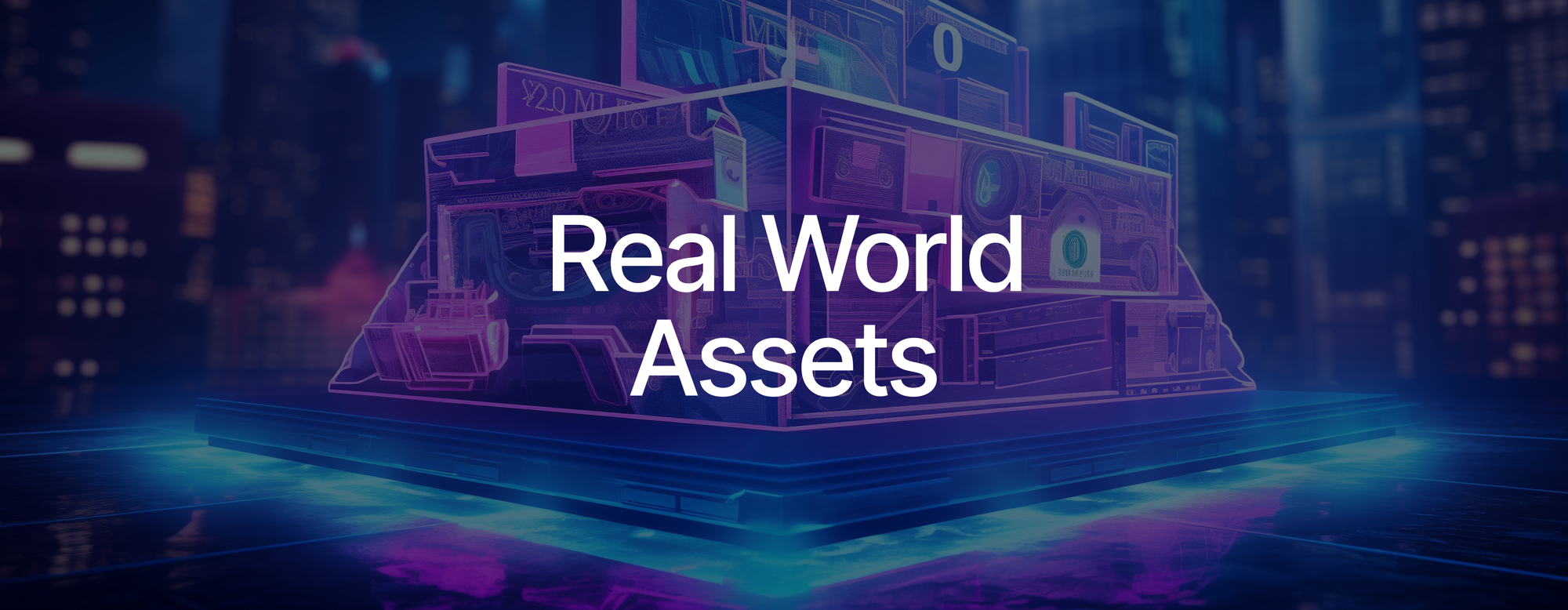All About Real World Assets
Tokenizing real world assets helps to bridge the gap between traditional finance and DeFi.

The tokenization of Real World Assets (RWAs) is reshaping how traditional physical assets are managed and traded digitally. By bringing these assets onchain and integrating them into DeFi ecosystems, tokenized RWAs provide more accessibility, efficiency, and functionality for assets such as real estate, commodities, and fine art.
Beyond the general advantages of onchain assets, Sui uniquely supports RWAs through powerful primitives and its unique object-oriented architecture that enable innovative approaches to bridge the gap between traditional finance and DeFi.
What are real world assets?
In the context of a Web3, the term RWA refers to assets that naturally exist outside of blockchain ecosystems. They are often physical or tangible assets that have been digitized and represented onchain. These assets are tokenized or converted into digital tokens that can be bought, sold, and transferred within DeFi ecosystems.
Tokenization of RWAs brings the transparency, security, and efficiency attained in DeFi to assets with deep levels of liquidity and wide reach. This process can make traditionally illiquid assets, like real estate or fine art, more accessible to a broader audience by more easily enabling fractional ownership. Additionally, RWAs can offer more straightforward and faster transactions, as they reduce the need for intermediaries like brokers or escrow agents. RWAs also benefit from a proven chain of ownership, ensuring that at least the digital version maintains clear and verifiable provenance throughout its lifecycle. This is particularly important for assets like art or collectibles, where ownership history significantly impacts authenticity and value.
Examples of RWAs
The concept of tokenizing assets can apply to a wide range of sectors. Here are a few examples that illustrate the diversity and potential of RWAs:
- Real estate: One of the most interesting examples of RWAs is real estate tokenization. By converting property ownership into onchain assets, individuals can buy and sell fractional shares of real estate, making property investment more accessible to those who may not have the capital to purchase an entire property. In the case of full-ownership purchases, real estate RWAs streamline processes eliminating some of the traditional costs of purchasing a home while also providing instant ownership transfers.
- Commodities: Commodities such as agriculture, precious metals, and oil are common assets of interest for tokenization. Tokenized commodities offer individuals a convenient and secure way to gain exposure to these markets, allowing for fractional ownership and more efficient trading, without the logistical challenges and costs associated with traditional methods.
- Fine art: Physical art pieces can be tokenized to enable fractional ownership, allowing multiple investors to own a portion of a masterpiece. This democratizes access to the fine art market and provides liquidity for art investors, who can buy and sell their shares onchain. For example, ArtFi is building for this vision, leveraging Sui technology to provide access to fine art onchain in a sophisticated way.
Being onchain assets, RWAs provide interesting DeFi opportunities as well. Assets onchain benefit from composability with DeFi protocols and other assets. For example, tokenized real estate can be used as collateral to borrow funds in DeFi lending platforms. Imagine leveraging a tokenized home deed onchain to quickly access liquidity in the event of an emergency, such as covering unexpected medical expenses or making urgent home repairs. This capability allows traditionally illiquid assets to become accessible financial instruments.
Sui uniquely supports RWAs
Thanks to the distinct architecture of Sui and its powerful primitives, Sui uniquely supports the tokenization and utilization of RWAs. Using Sui’s dynamic NFTs, Sui Kiosk, and Closed-Loop Tokens (CLTs), builders are able to design more sophisticated RWA platforms.
Sui’s dynamic NFTs allow RWAs to be represented in a way that can evolve and update over time, capturing changes like property improvements or shifts in valuation. This capability ensures that the digital token remains aligned with the current state of the asset, enhancing both transparency and accuracy.
Sui Kiosk plays a crucial role in simplifying transactions involving RWAs. As a user-friendly platform for buying, selling, or leasing tokenized assets, Sui Kiosk reduces the barriers to accessing and trading these assets, making the process more intuitive and accessible for users. Sui Kiosk's ability to apply automatically enforced royalties comes in especially useful for fine art and collectibles, where the creator can benefit from secondary sales.
In addition, Sui’s CLTs provide a higher level of control and customization, which is particularly important for RWAs that require strict compliance with regulatory standards or specific usage restrictions. CLTs enable issuers to enforce rules on how and where tokens representing RWAs can be used, such as limiting transfers to verified users or restricting usage to certain jurisdictions.
By combining these features, Sui delivers a unique platform for the tokenization and management of RWAs, offering enhanced security, compliance, and accessibility. These features not only enhance security and compliance but also improve the overall usability and accessibility of tokenized assets.
A digitized future
While the tokenization of real-world assets is still in its early stages, the potential applications and benefits are vast. As the technology matures and regulatory frameworks evolve, RWAs will likely become a cornerstone of the global financial system, offering new opportunities for investment, liquidity, and asset management.
Note: This content is for general educational and informational purposes only and should not be construed or relied upon as an endorsement or recommendation to buy, sell, or hold any asset, investment or financial product and does not constitute financial, legal, or tax advice.

